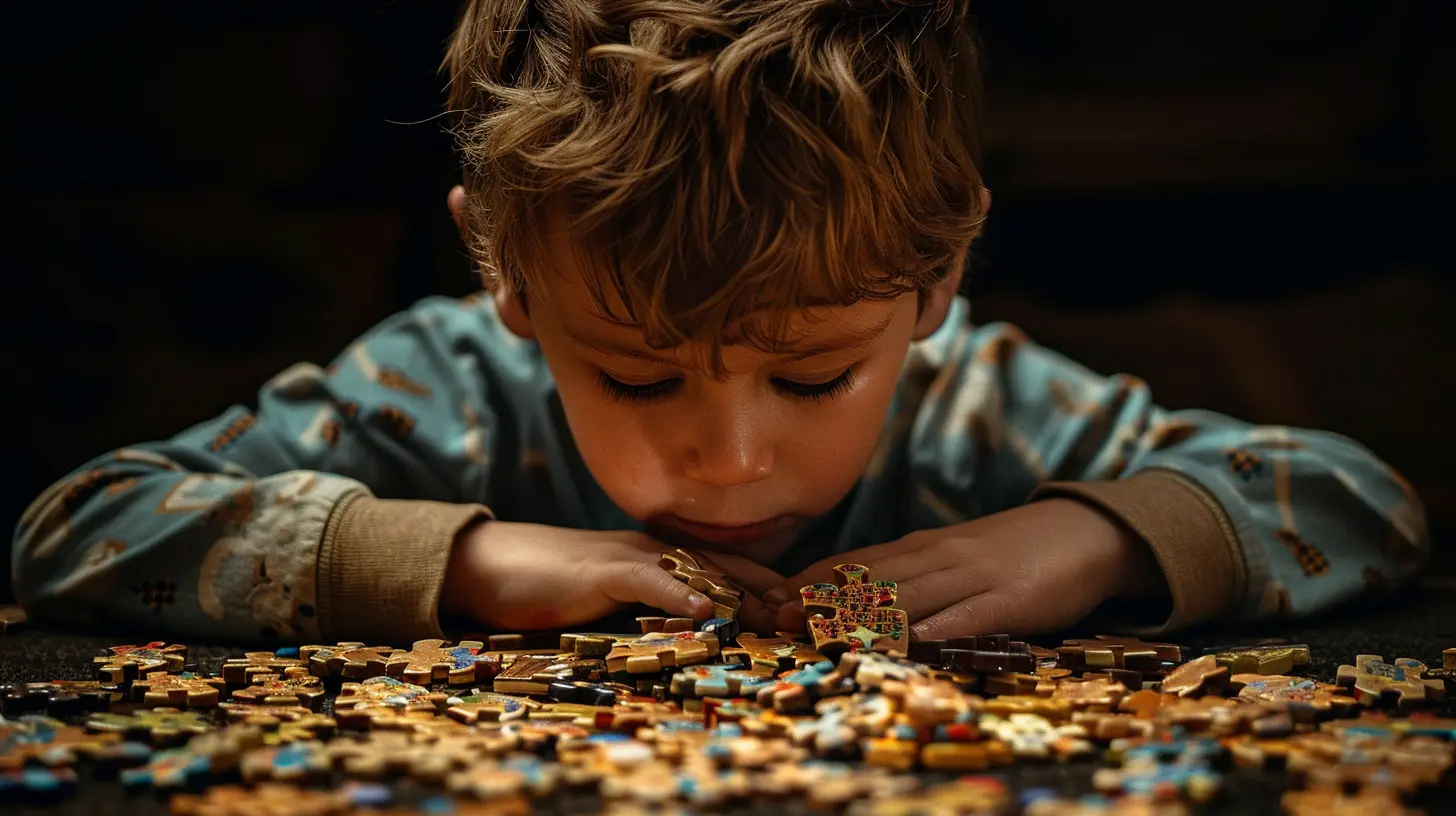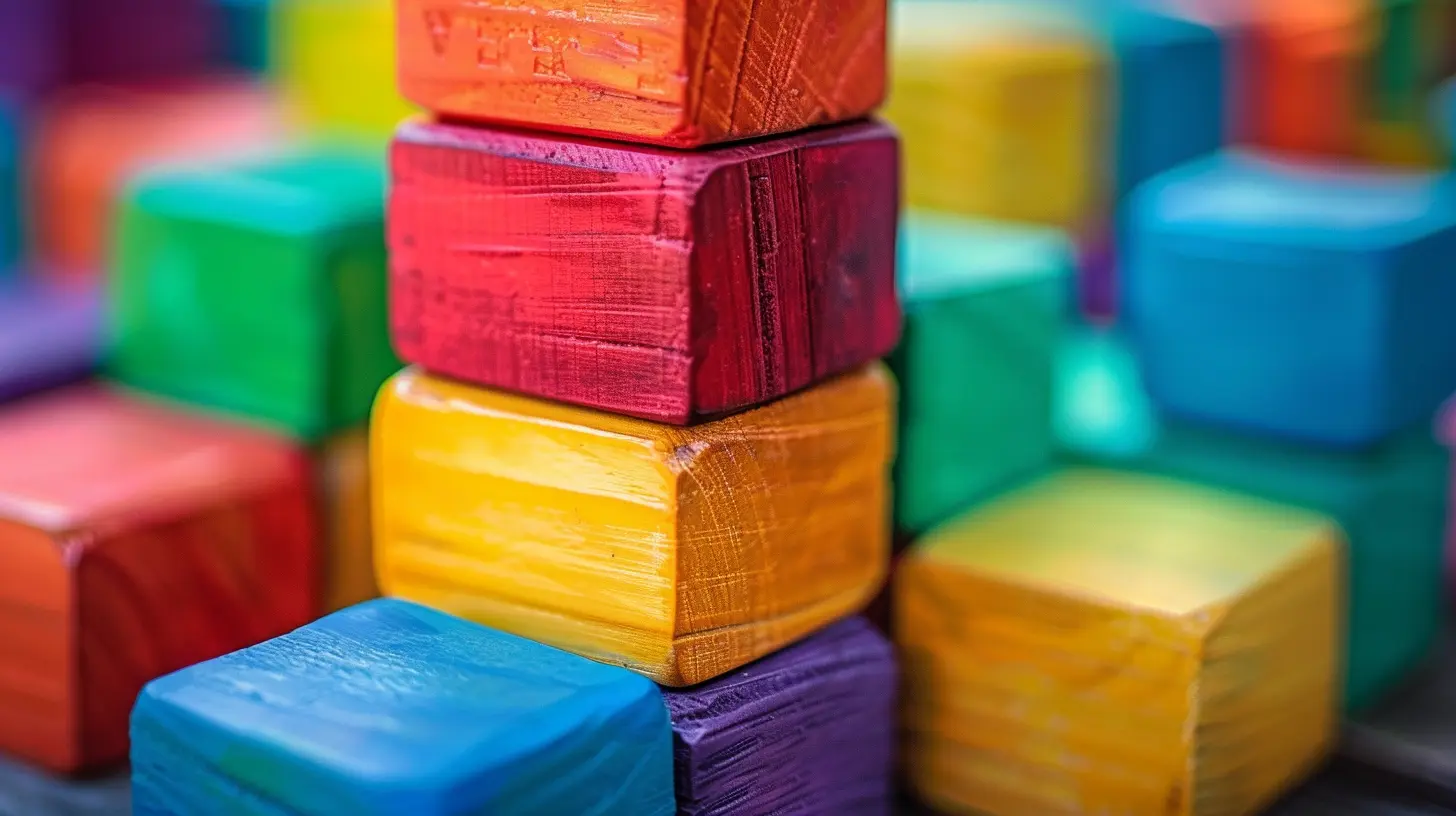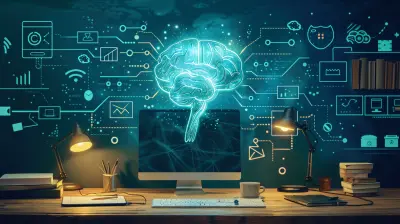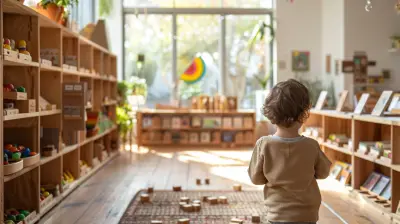22 October 2025
Cognitive development in preschoolers is like watching a butterfly emerge from its cocoon—fascinating, delicate, and full of transformation. Have you ever noticed how a child suddenly starts asking endless “why” questions or begins solving simple problems on their own? That’s cognitive growth in action!
But what exactly is cognitive development? And why is it so important during the preschool years? Let’s dive deep into this journey of early brain development, exploring how young minds learn, think, and process the world around them.

What Is Cognitive Development?
Cognitive development refers to how children think, explore, and figure things out. It includes learning, memory, problem-solving, and decision-making skills. These abilities help children make sense of their surroundings and play a crucial role in their overall growth.During preschool years (ages 3–5), children undergo rapid cognitive changes. Their brains are like little sponges, absorbing new information at an astonishing rate. This stage sets the foundation for their future learning, social interactions, and emotional well-being.

The Key Stages of Cognitive Development in Preschoolers
Psychologist Jean Piaget, a pioneer in child development, outlined different stages of cognitive growth. Preschoolers typically fall into the preoperational stage (ages 2–7). Here’s a breakdown of what happens:1. Symbolic Thinking Emerges
Preschoolers start using symbols, such as words and images, to represent objects and ideas. This is why they engage in pretend play—a cardboard box turns into a spaceship, or a doll becomes their best friend.2. Egocentrism Dominates
At this stage, kids often see the world from their own perspective. They struggle to understand that others might think or feel differently. Ever tried telling a 4-year-old that their friend might not want to share their toy? Not an easy conversation!3. Improved Memory and Recall
Have you noticed how preschoolers begin to remember stories, songs, and even random facts? Their memory capacity is expanding, helping them recall past events and recognize patterns.4. Concrete Problem-Solving Skills Develop
Although abstract thinking is still in the works, preschoolers start recognizing cause-and-effect relationships. For example, if they push a toy car, it moves forward. This realization encourages curiosity and exploration.5. Increased Attention Span
While toddlers have the attention span of a goldfish, preschoolers can focus on activities for longer periods—especially when they’re engaged in something fun. This is why interactive learning, like puzzles and storytelling, works wonders.
How Do Preschoolers Learn Best?
Understanding how preschoolers absorb knowledge can help parents and educators tailor better learning experiences. Here are some effective ways they learn:1. Through Play
Play isn’t just fun—it’s essential for cognitive development. Whether it’s building blocks, role-playing, or chasing bubbles, playful activities enhance problem-solving skills, creativity, and social understanding.2. Hands-On Experiences
Preschoolers learn best when they can touch, feel, and explore. Give them sensory bins, let them mix colors, or allow them to squish playdough—it all boosts cognitive connections.3. Asking Questions (Lots of Them!)
Kids are naturally curious, and their favorite tool for learning is the question “Why?” While it may be exhausting to answer a hundred questions a day, each inquisitive moment strengthens their reasoning skills.4. Storytelling & Reading
Reading aloud introduces children to new vocabulary, emotions, and ideas. Stories also enhance their imagination and critical thinking—so never skip bedtime books!5. Social Interaction
Preschoolers learn a lot from interacting with peers and adults. Conversations, group activities, and cooperative games help them understand different perspectives and build communication skills.
Encouraging Healthy Cognitive Development
Now that we know how preschoolers learn, what can we do to support their growth? Here are some practical tips.1. Provide Stimulating Environments
A rich learning environment helps children expand their cognitive skills. Offer age-appropriate puzzles, art supplies, books, and interactive toys to encourage exploration.2. Let Them Experiment
Give children the freedom to experiment and make mistakes. Whether it’s stacking cups in impossible ways or trying to pour juice into a tiny cup, they’re learning through trial and error.3. Engage in Conversations
Talk to your child about everything—what they see, what they feel, and what they’re curious about. Open-ended questions like, “What do you think will happen next?” spark problem-solving skills.4. Limit Screen Time
While educational apps can be useful, too much screen time can hinder cognitive and social development. Balance screen exposure with hands-on activities and outdoor play.5. Encourage Outdoor Exploration
Nature is packed with learning opportunities. Collect rocks, watch bugs, or simply let kids run around outside. These experiences sharpen observation and critical-thinking skills.Common Cognitive Challenges in Preschoolers
Not all preschoolers develop at the same pace, and that’s completely normal. However, some children may face cognitive challenges, such as:- Short Attention Span: Some kids struggle to focus for extended periods, which can make structured activities challenging.
- Difficulty in Problem-Solving: If a child consistently has trouble with puzzles or basic reasoning tasks, it might indicate a developmental delay.
- Memory Struggles: Trouble recalling names, instructions, or past events could be a sign they need extra reinforcement.
If you notice persistent cognitive difficulties, consulting a pediatrician or child psychologist can provide early intervention strategies.
The Role of Parents and Educators
Parents and teachers play a critical role in shaping preschoolers’ cognitive development. Children thrive when they have supportive adults who:- Show patience and encouragement
- Foster a love for learning through engaging activities
- Provide opportunities for problem-solving
- Offer positive reinforcement and celebrate small achievements
Final Thoughts
Cognitive development in preschoolers is a thrilling process—one filled with countless “aha!” moments, curiosity-driven questions, and exciting discoveries. As parents or educators, embracing this journey with patience and enthusiasm can set the stage for a child’s lifelong love for learning.The preschool years lay the groundwork for future academic success, social skills, and emotional intelligence. So, let’s nurture young minds, fuel their curiosity, and celebrate their growth, one little step at a time.









Layne Schultz
This article beautifully highlights the crucial stages of cognitive development in preschoolers. Understanding how young minds work can significantly enhance our interactions and support their learning. It's inspiring to see such valuable insights shared, helping parents and educators foster a nurturing environment for children's growth. Thank you for this important resource!
January 19, 2026 at 2:09 PM